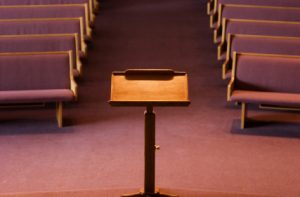 Christianity has always been growing, changing, and evolving. In recent years the rate of change has accelerated. Here in America the shift toward a less religiously affiliated population is well underway. Recent research has led many experts to speculate that it is reasonable to think the nones (those with no religious affiliation) will grow even more rapidly in the next few decades.
Christianity has always been growing, changing, and evolving. In recent years the rate of change has accelerated. Here in America the shift toward a less religiously affiliated population is well underway. Recent research has led many experts to speculate that it is reasonable to think the nones (those with no religious affiliation) will grow even more rapidly in the next few decades.
For those who have chosen to remain a part (or who have opted to become a part) of Christianity, corporate worship is often a central component of that experience. Within worship the longest single element in many traditions is a sermon. In my lifetime the most common form of sermon has shifted from an auditory event (one person speaking and many listening) to a rich sometimes interactive multimedia and muti-sensory experience (one person speaking and many listening + viewing images, videos, and words & in some cases being encouraged to engage in real time using backchannels like Twitter). Some, however, feel that such changes are not radical enough for a postmodern congregation.
Earlier this month Thom Schulz wrote a blog post suggesting that the time has arrived for a shift from the sermon as monologue to dialogue. In making a case for such a transition Schulz notes soon to be published research that shows the majority of those who have left the church do not like the monologue approach. Additionally, Schulz offered a few examples of how churches do dialogical preaching.
So What?
As an educator I have heard about the shift from the professor as the sage on the stage to the guide on the side more times than I can count. In arguing for a different model in the classroom and a new approach to preaching/teaching in worship people are not seeking to devalue the role or wisdom of the subject matter expert. Instead, thought leaders are seeking to maximize the effectiveness of the experience by increasing engagement.
There is not an ideal one size fits all (or even one size fits most) approach to preaching. It is, however, important that local congregations are willing to critically analyze all that they do, especially core experiences such as worship.
- Describe a typical sermon experience in your local congregation. What changes would you welcome? What, if any, changes would you be so uncomfortable with that you might consider disaffiliating with your congregation?
- What do you understand the role of a sermon to be? How effective are most sermons you hear when evaluated using this understanding?
- Do you think within the next few decades the dominant approach will shift from one person doing most of the talking during a sermon to many people? Why or why not?